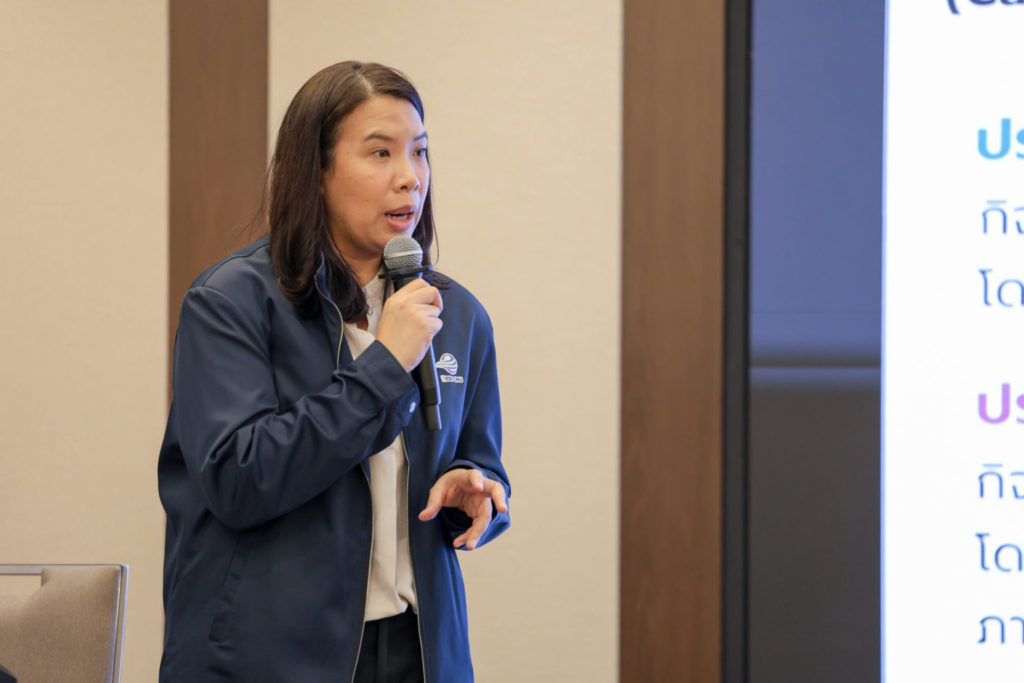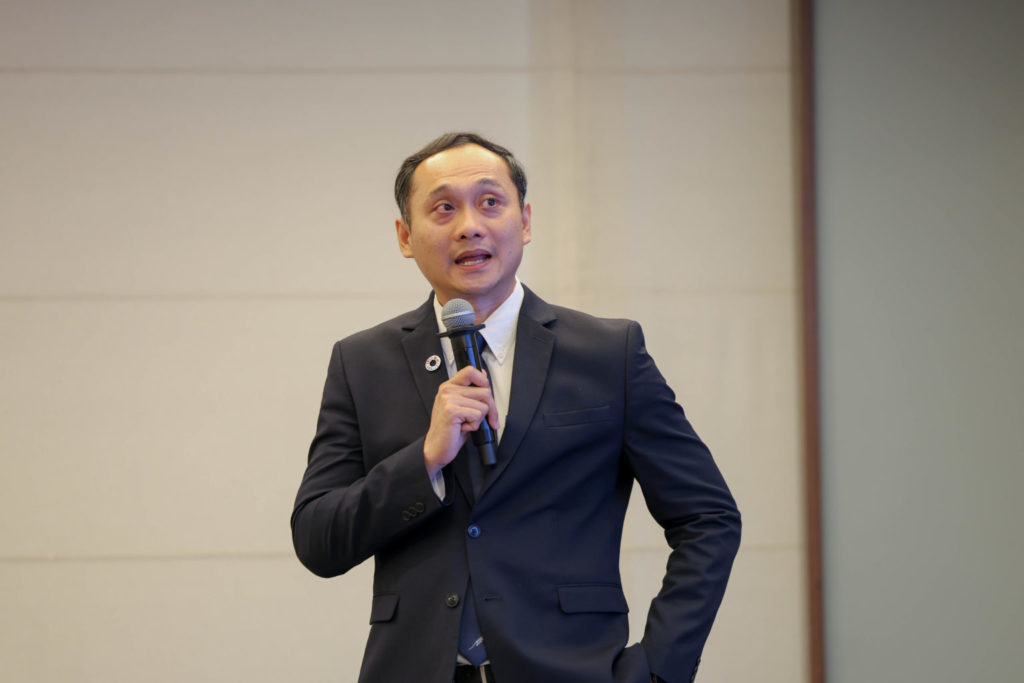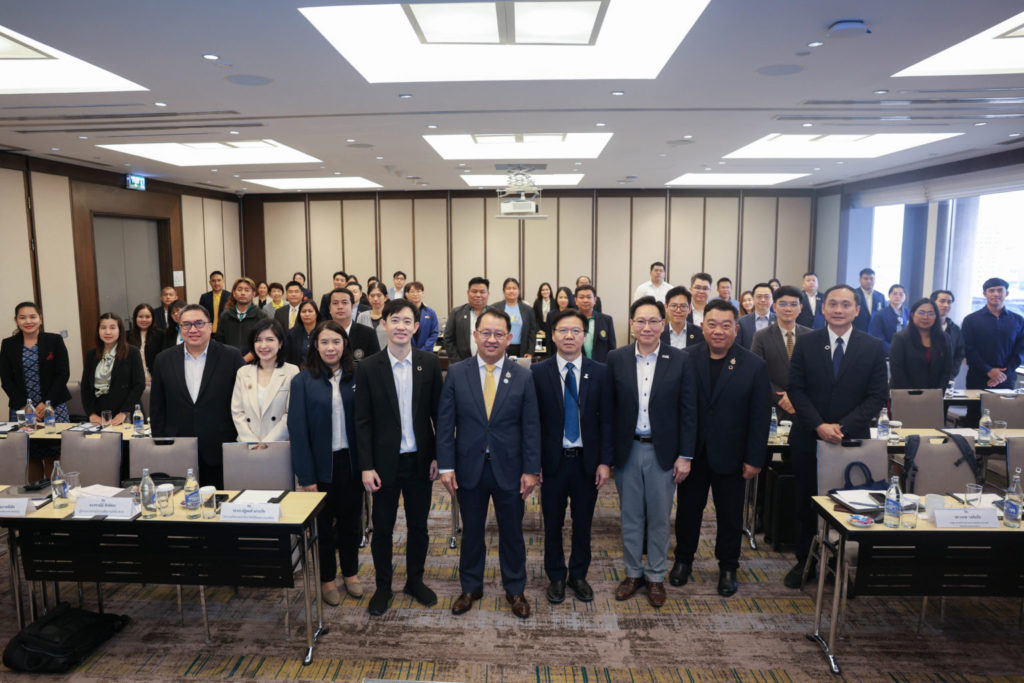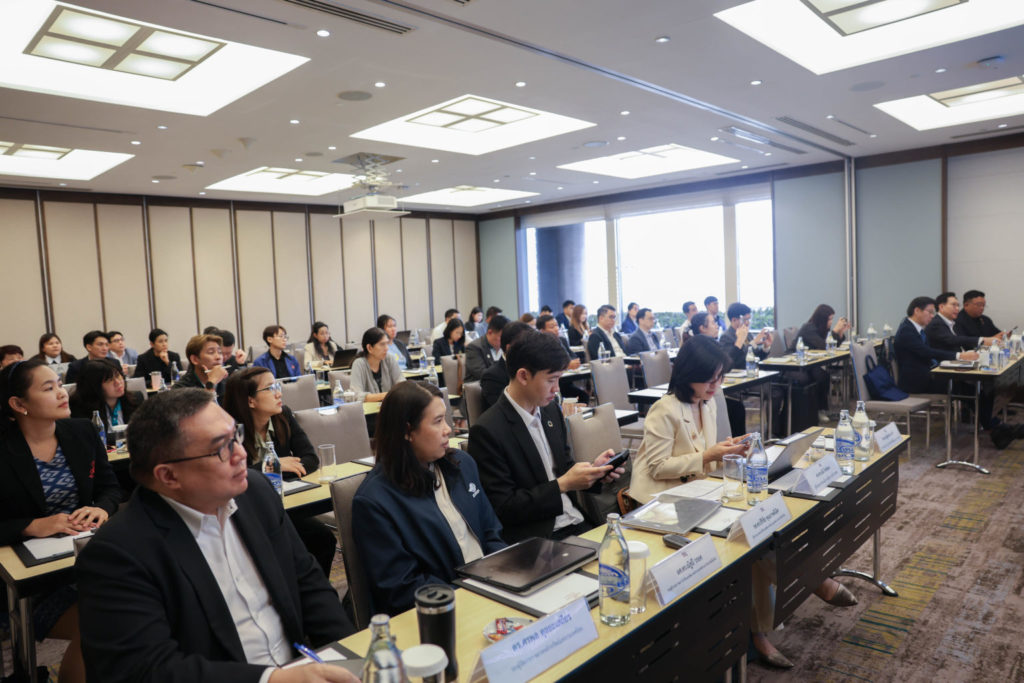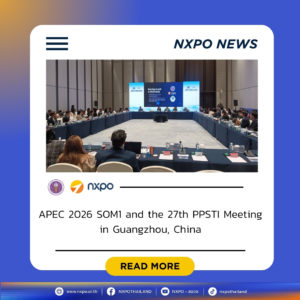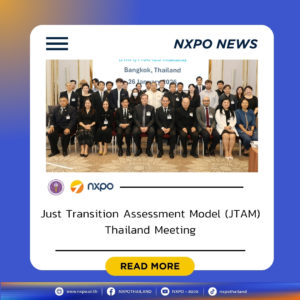On 30 July 2025, NXPO, in collaboration with the Thailand Science Research and Innovation (TSRI), the Council of University Presidents of Thailand (CUPT), and the Sustainable University Network of Thailand (SUN Thailand), convened the Net Zero Campus Meeting. The event aimed to advance Thailand’s higher education sector toward climate goals and support the country’s net-zero transition.
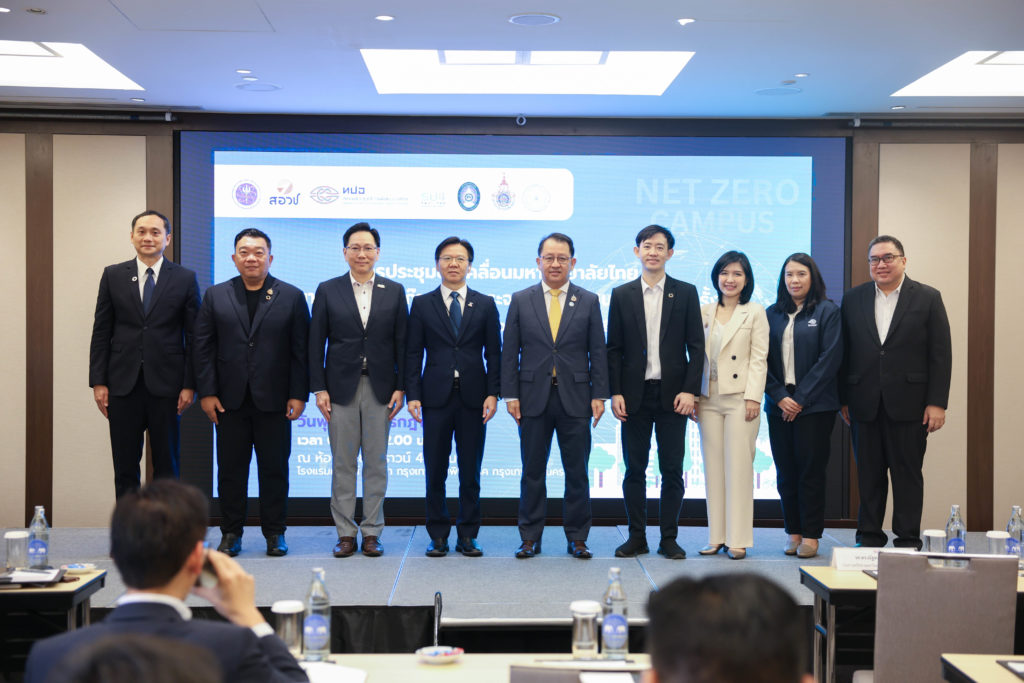
Assoc. Prof. Wongkot Wongsapai, Vice President of NXPO, delivered the opening remarks and a keynote presentation titled “Policy and Strategic Goals of the Ministry of Higher Education, Science, Research and Innovation (MHESI) in Advancing Higher Education Institutions toward Net Zero Campus.”
He explained that the Net Zero Campus initiative was launched to encourage universities to design emission reduction strategies tailored to their specific contexts, while also supporting surrounding communities and industries in reducing emissions.
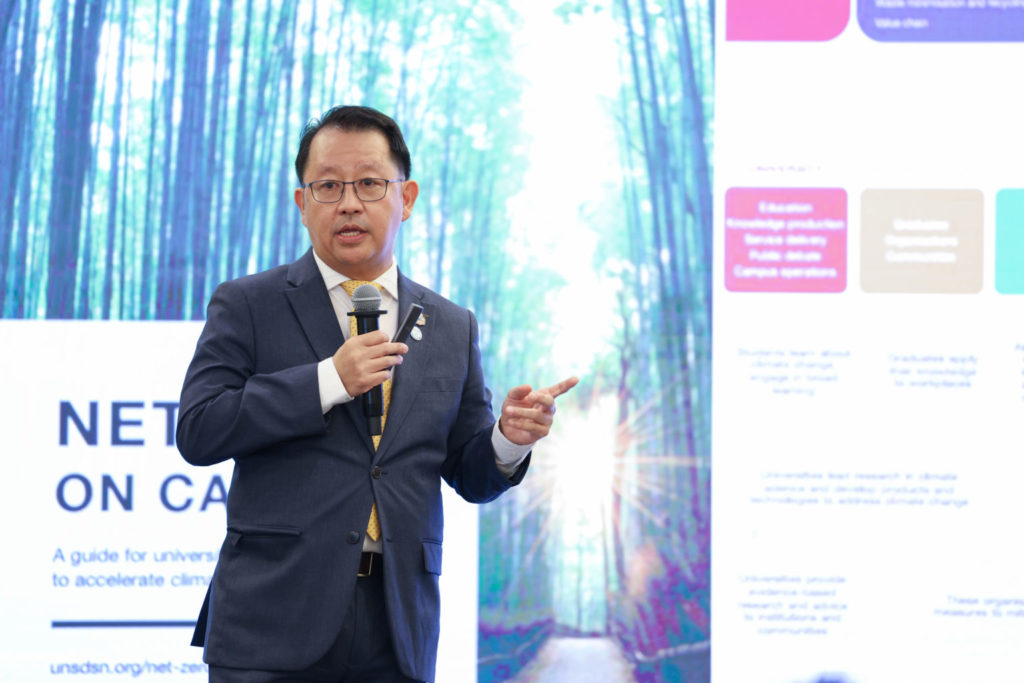
“This meeting marks an important step in fostering university involvement in achieving Thailand’s Nationally Determined Contributions (NDC) for 2030. Universities can collectively accelerate national progress,” said Assoc. Prof. Wongkot.
During his keynote, he provided an overview of Thailand’s higher education, science, research, and innovation system. Within this framework, the Science, Research and Innovation Promotion Fund allocates resources for climate-related research and projects. He also highlighted NXPO’s role as Thailand’s National Designated Entity (NDE) under the UNFCCC, supporting climate technology development and transfer, as well as the focal point for the Technology Needs Assessment (TNA) project.
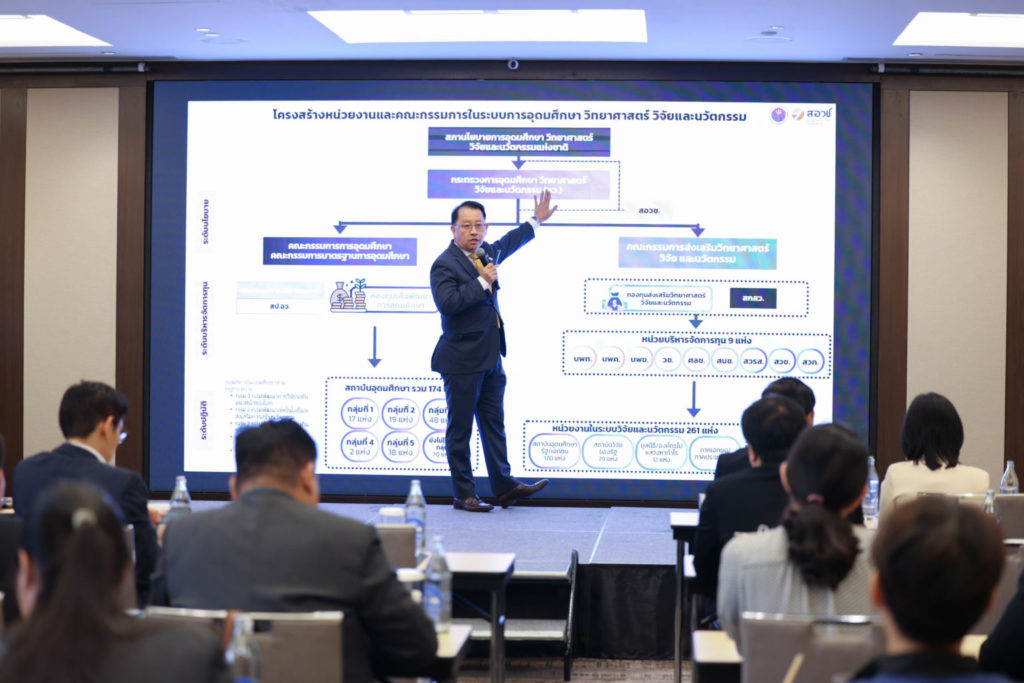
NXPO’s climate action initiatives include the Saraburi Sandbox, a pilot project for a low-carbon city. Through partnerships with local authorities and industries, the project is creating a Net Zero Emission Innovation Zone. NXPO also plays a key role in facilitating international cooperation through technology and financial mechanisms.
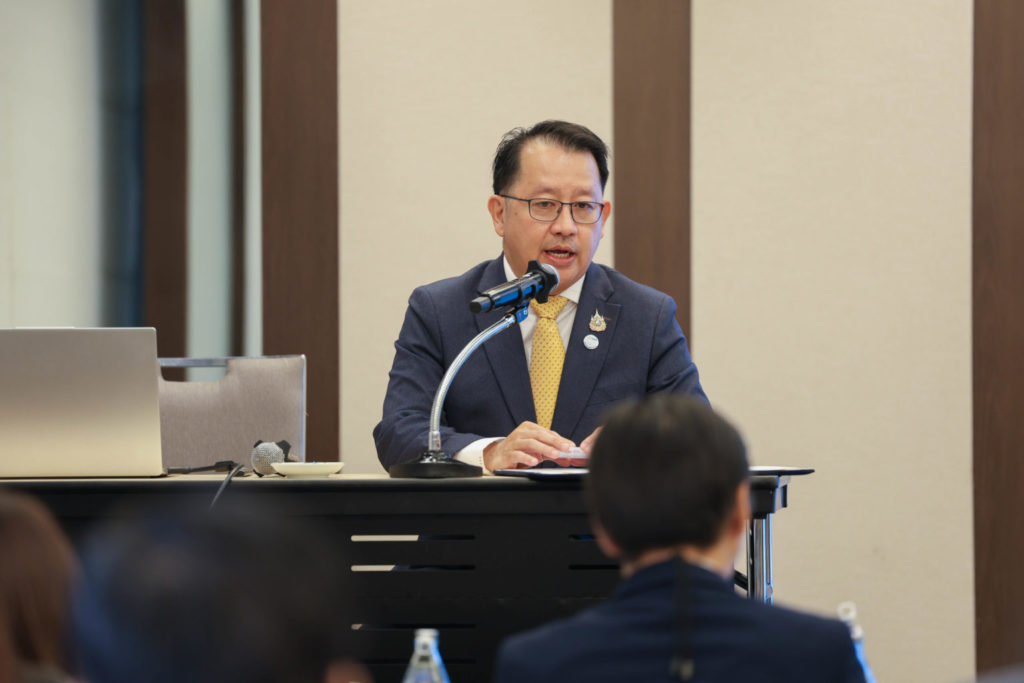
Assoc. Prof. Wongkot emphasized that a key goal is to reduce greenhouse gas emissions by 10 million tons of CO₂ equivalent. One of NXPO’s flagship efforts in this regard is the Net Zero Campus project, which targets participation from 50 universities. In addition, he also introduced the Thailand Talent Landscape (2025–2029) report, which identifies 13,372 skilled positions needed in sectors such as biofuels, biochemicals, biotechnology, the circular economy, and the green economy. NXPO is working with MHESI on skill mapping for emerging job roles—such as sustainability development specialists and carbon footprint specialists—which will inform curriculum design, assessment systems, and the development of skill transcripts to support green career pathways.
Strong leadership and well-defined organizational structures, he stressed, are essential for a successful sustainability transition in the industrial sector.

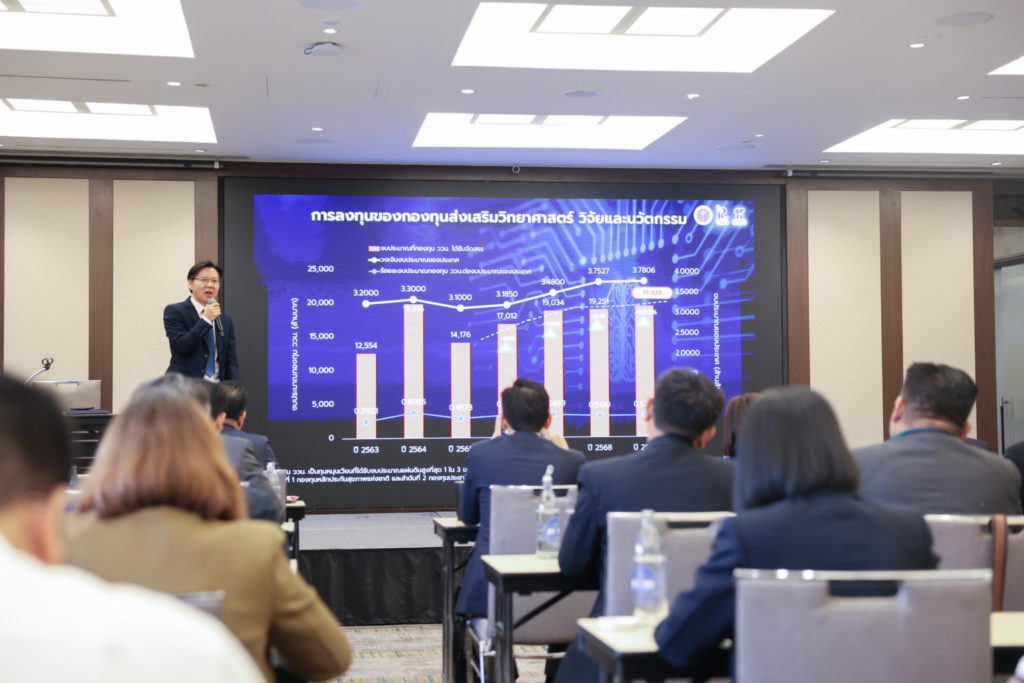
The meeting also featured a presentation by Asst. Prof. Dr. Poolsak Koseeyaporn, Vice President of TSRI, who outlined the National Science, Research and Innovation Plan (2023–2027). The plan is built on four strategic pillars: 1) Strengthening the Thai economy; 2) Enhancing society and the environment; 3) Advancing frontier science and innovation; and 4) Talent and institutional development. He also explained the national funding framework, which includes the Fundamental Fund (FF), Strategic Fund (SF), and Research Utilization (RU) funding.
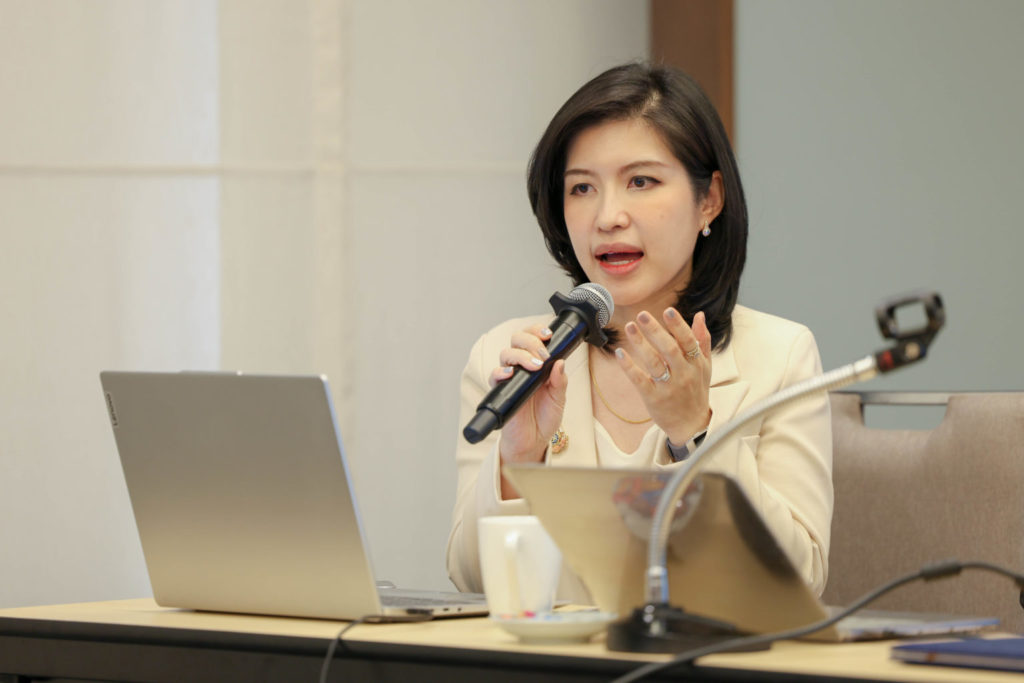

A brainstorming session followed, moderated by Assoc. Prof. Dr. Sirichai Koonaphapdeelert, Director of the Energy Research and Development Institute–Nakornping at Chiang Mai University, and Dr. Saravanee Singtong, Director of the Sustainability Policy Division at NXPO. The session provided a platform for university representatives to exchange ideas, address challenges, and offer recommendations for implementing the Net Zero Campus initiative.
